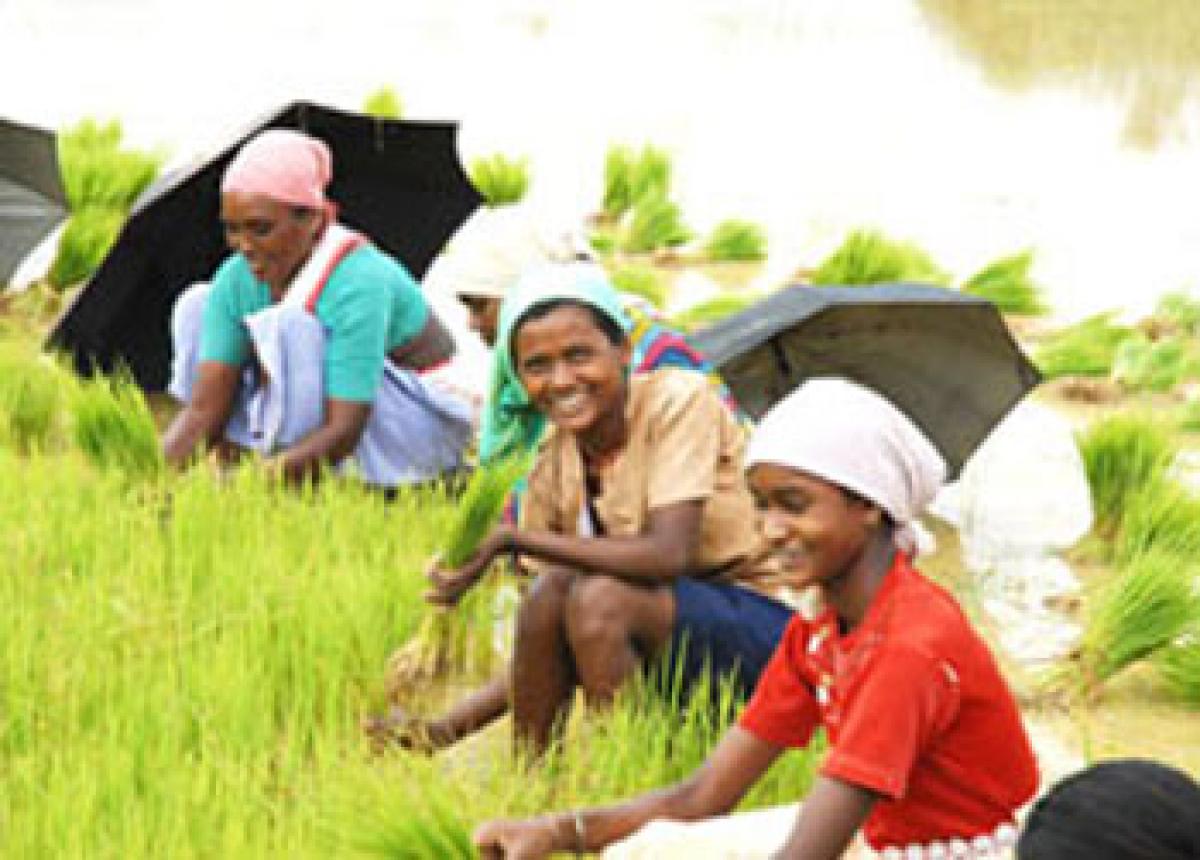CSR can help bring about social justice

That was a welcome move despite it not being able to solve the problem in its totality. Though inadequate, gaps could be effectively filled even if 40 per cent of CSR funds of the Telangana State could be utilised for agricultural purposes.
A silver lining amid the dark clouds came in Telangana State when the State government issued a GO for the implementation of corporate social responsibility (CSR). That was a welcome move despite it not being able to solve the problem in its totality. Though inadequate, gaps could be effectively filled even if 40 per cent of CSR funds of the Telangana State could be utilised for agricultural purposes.
Wiser counsel tells us that there are an ample number of ways by which the CSR funds could be utilised so that the farming community stands to be the biggest gainer. Of course, all other sectors also need financial assistance. Hence, it becomes imperative to earmark specific amounts to each of them. Some of the crucial ones are as follows:
Creation of water resources
CSR funds could be used each summer to create water resources and conserve water over 20,000 hectares of land. These can be achieved by constructing contour bunds, stone bunds, farm ponds, loose boulders, masonry check dams, in addition to construction of infiltration tanks around bore wells. The likely expenditure involved for undertaking such works over two hectares will be in the Rs 20,000 to Rs 50,000 range. Encourage at least 20 farmers to restore seed sovereignty every year in order to develop a good variety of seeds. Initiative should be taken to establish at least three research & development units in development of quality seeds through agro-based industries that are suitable for semi-arid atmospheric conditions. The government can collect statistical data of at least 10,000 hectares of agricultural lands that are prone to heavy rains and floods; crops such lands can be covered under ‘Fasal Bheema Yojna’ with the help of CSR funds as a measure of ensuring suitable crop insurance.
Post-harvest management
After addressing land use, seeds quality, any remaining CSR funds can be put to good use by providing electronic entry machines each at a cost of Rs 80,000 to at least 30 Agricultural Marketing Committees (AMCs) every year. This can put an end to the monopolistic hold of commission agents and bring relief to the aggrieved farmers.
There is a need to construct around 30 drying platforms in AMCs (each unit will cost around Rs 2-3 lakh) and provide 20 tarpaulins to each AMC at the rate of Rs 20,000 per year to control damage to the yields from unseasonal rains. Every year 200 small and marginal farmers who are keen on organic farming can be extended a matching grant of Rs 5,000 in addition to the financial assistance provided by the government to meet post-harvest needs. Refrigerator vans required for delivery of fruits and vegetables that get damaged due to lack of transportation in cold systems should also be provided. Ripening chambers can be constructed in fruit markets to avoid spread of poisonous carbide on fruits.
The officials concerned can obtain data of companies that are eligible under the CSR and ask them to allocate certain percentage of funds for such activities. Care must be taken to hold review the use of funds by conducting regular meetings and verification of Q3 sheets of such companies having operations across the State. A better way would be formation of a Joint Action Committees (JAC) with representatives from the government, local women SHGs, farmers and NABARD in order to take stock of the implementation of works at the ground level and their progress. It should conduct meetings once in three months to help in the preparation of detailed project reports and sensitise and guide the companies in appropriate use of CSR funds.
Prepare an action plan based on the assessment of inputs for agriculture on availability of seeds before the commencement of the kharif season, and monitor supply of seeds in convergence with seed producing companies. Synchronise new and renewable energy data with the department concerned and educate farmers on the benefits of using solar technology.
If the policy makers formulate such achievable and beneficial measures, and the same are implemented by the officials, then one can be sure that lives of thousands of farmers, who contemplate suicides as the last resort, could be saved.
In conclusion
We often hear terms like ‘social justice’ by people of eminence and those who can shape the well-being of the distraught sections. Somehow, such verbose tends to degrade the tall claims if social justice cannot reduce the inequalities that exist in the society.
All said and done, CSR may be the social change agent that can alleviate poverty in a very effective manner. All that is required is the willingness to change and provide the poor families a reason to smile. The onus is, therefore, on the corporate sector as also the majority of the affluent class. And the time to usher in the change is here and now.
Sarala Vandanam S
(The writer is Special Grade Deputy Collector, Hyderabad district)

















